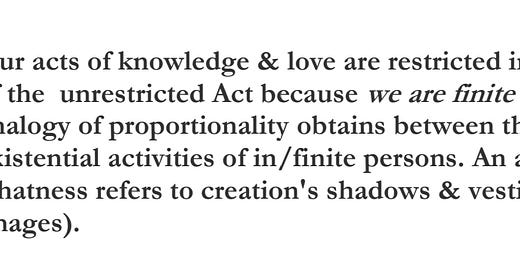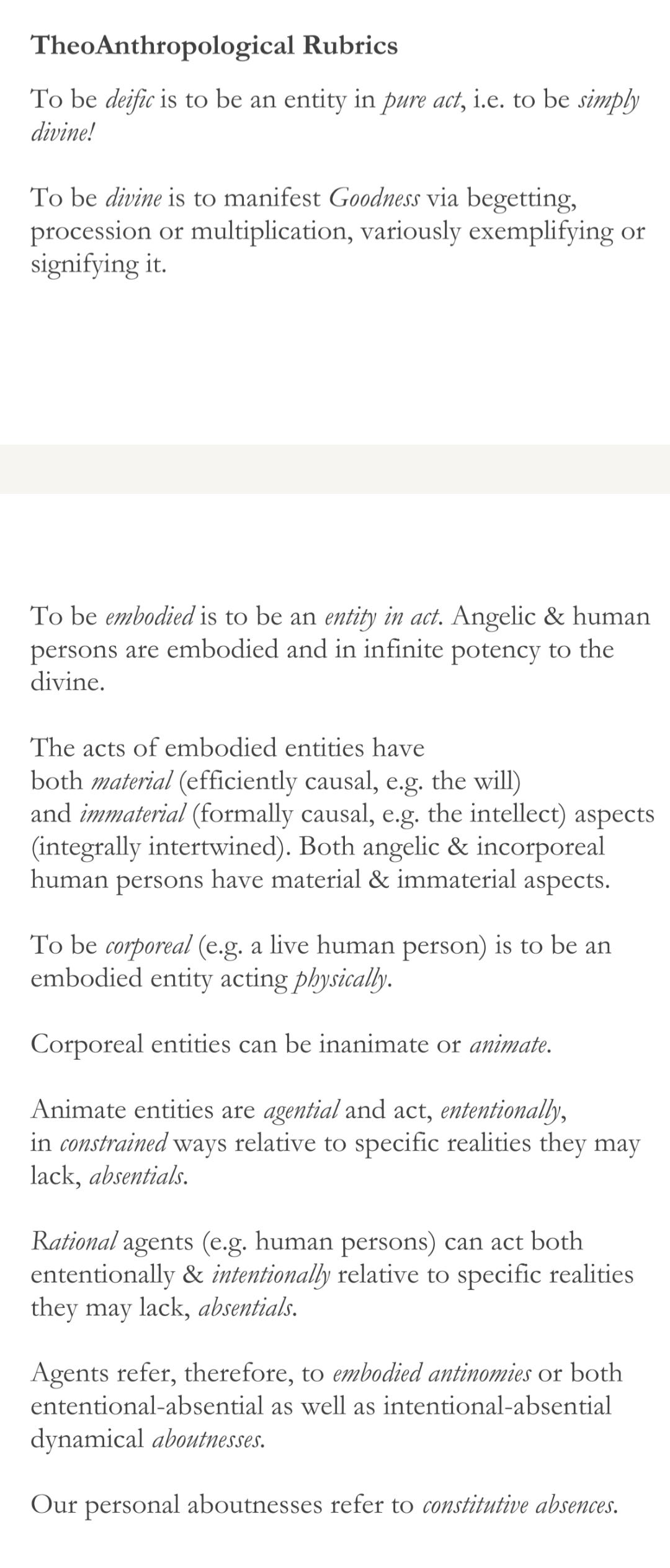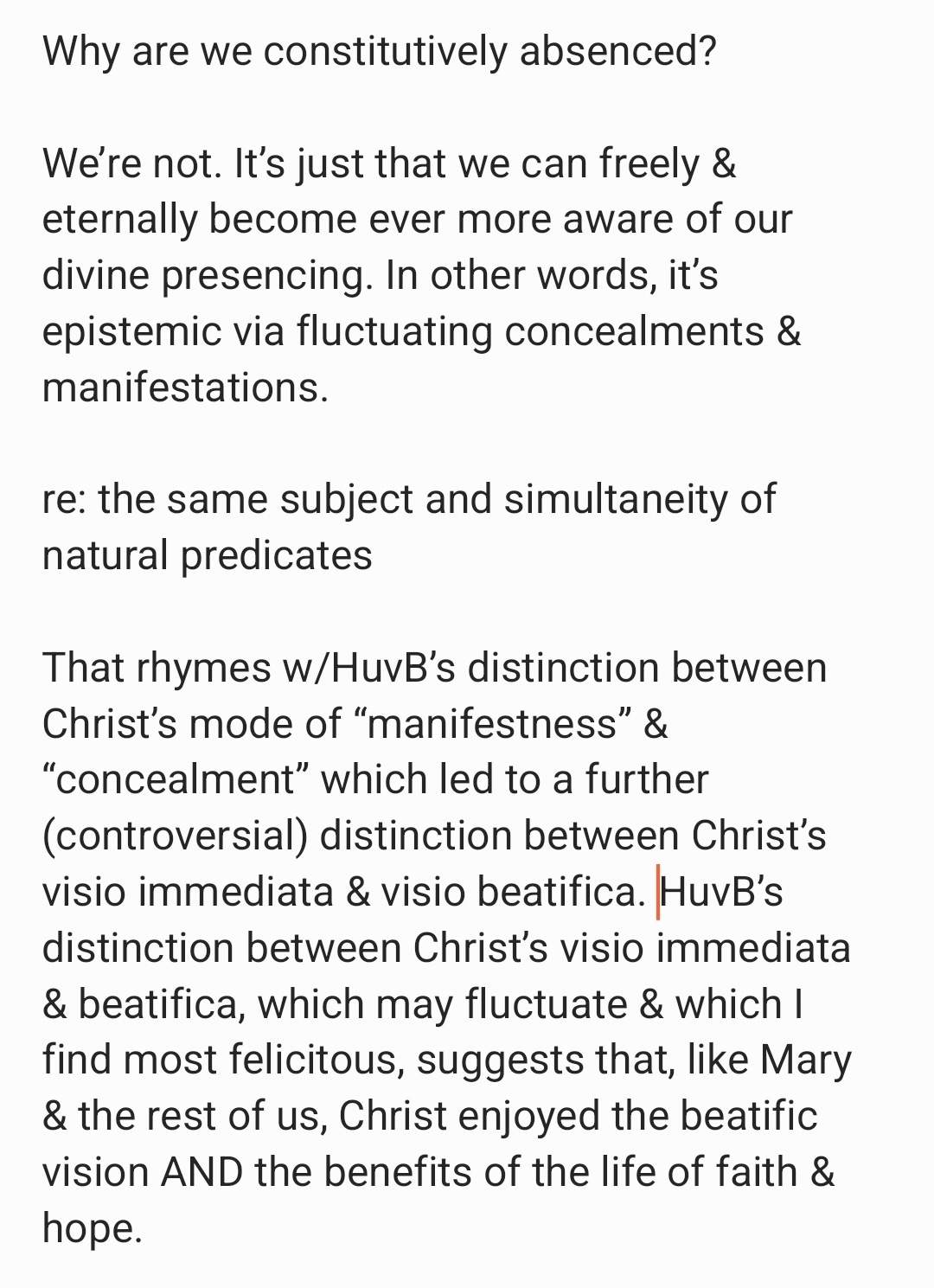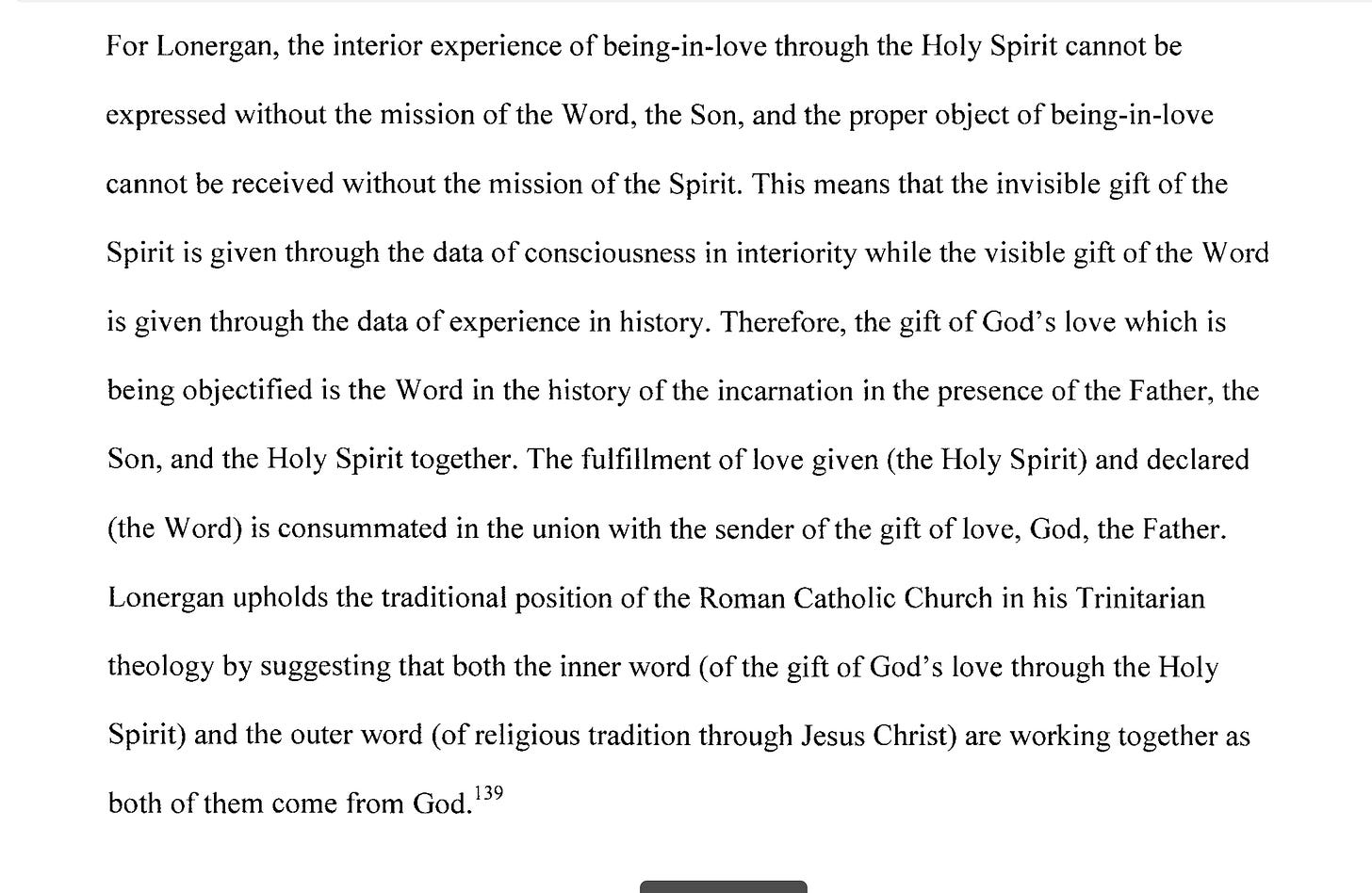Stitching Together Various Theo-anthropo Threads
Neochalcedonism doesn’t magically resolve oppositions in the register of ousia (what we are), logically & abstractly. Rather, it grammatically explores the unitive dynamics of embodied antinomies (BOTH who we are AND can become to each other), personally & concretely.
It employs an antinomial framework that harmonizes – not counterposed logical genera, but – actual relationships, which are already there in potency, between infinite & finite persons.
So, we aren’t appealing to some principle of hypostasis to dissolve essential antinomies. Rather, we are turning to the Trinitarian processions & missions to understand both the pneumatological mediating starting place of our original divine intentions & consciousness and the Christologically mediated outcomes of our final divine knowledge & loves.
above excerpted from Heejung Adele Cho
In the register of – not whatness, but – whoness, then, if humanity is naturally ecstatic & is already divine, that’s b/c our unrestricted desire (our primordial desire to know) has, itself, first been gifted by the Holy Spirit through Her universal presence.
Lonergan’s epistemology distinguishes mediating from mediated theology & his Pneumatology reverses the Trinitarian missions.
To dig deeper, do see: Heejung Adele Cho, Karl Rahner and Bernard Lonergan in Relation to the Attitude of Inclusivity within the Roman Catholic Church (2011)
As to theological fixations on antinomies of whatness, such explanatory ambitions should be suitably chastened:
“So, as Scotus notes, God is no more ineffable than anything else, as literally everything’s ineffable!“
~ Richard Cross










